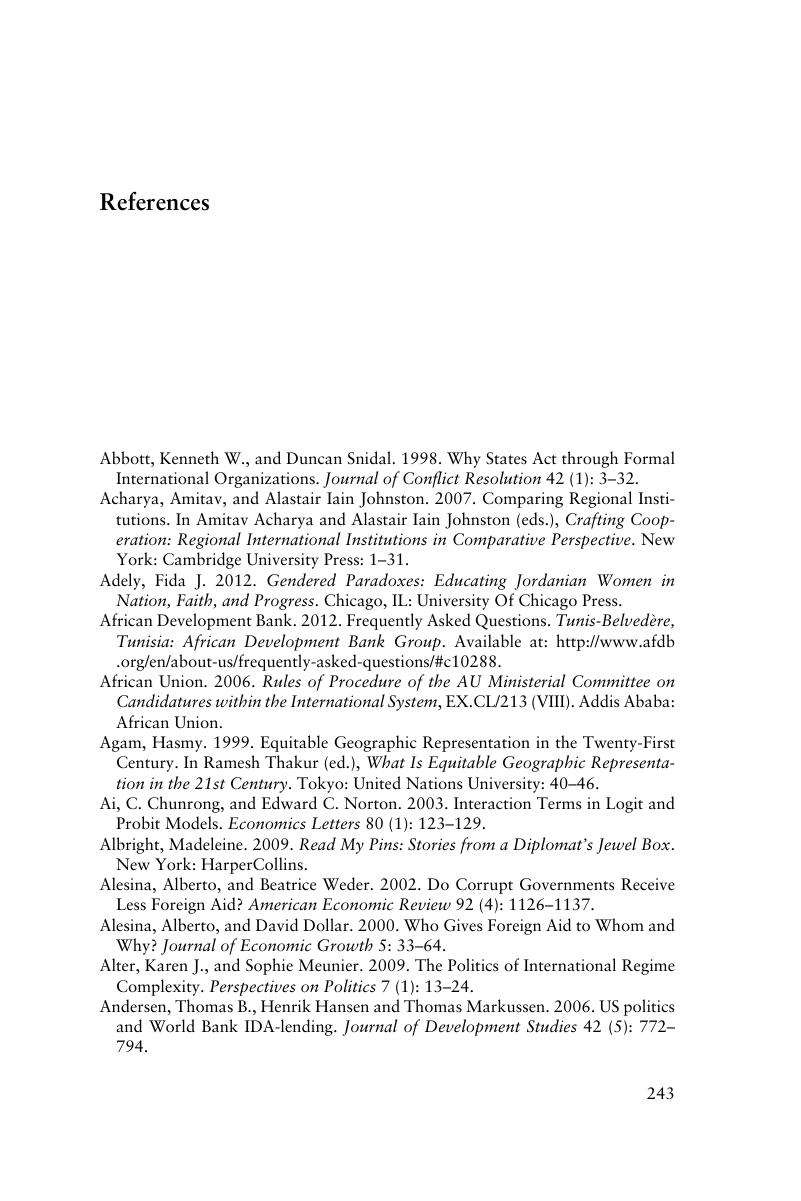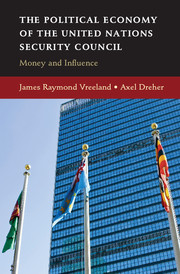Book contents
- Frontmatter
- Contents
- Figures
- Tables
- Acknowledgments
- 1 Money and Politics on the International Stage
- 2 A Theory of Trading Security Council Votes for Aid
- 3 Examples of Punishments, Threats, and Rewards
- 4 Who Wins Election to Represent the World?
- 5 Statistical Evidence of Trading Finance for Favors
- 6 Consequences of Politically Motivated Aid
- 7 Reforming the UNSC
- References
- Author Index
- Subject Index
- References
References
Published online by Cambridge University Press: 05 June 2014
- Frontmatter
- Contents
- Figures
- Tables
- Acknowledgments
- 1 Money and Politics on the International Stage
- 2 A Theory of Trading Security Council Votes for Aid
- 3 Examples of Punishments, Threats, and Rewards
- 4 Who Wins Election to Represent the World?
- 5 Statistical Evidence of Trading Finance for Favors
- 6 Consequences of Politically Motivated Aid
- 7 Reforming the UNSC
- References
- Author Index
- Subject Index
- References
Summary

- Type
- Chapter
- Information
- The Political Economy of the United Nations Security CouncilMoney and Influence, pp. 243 - 270Publisher: Cambridge University PressPrint publication year: 2014



